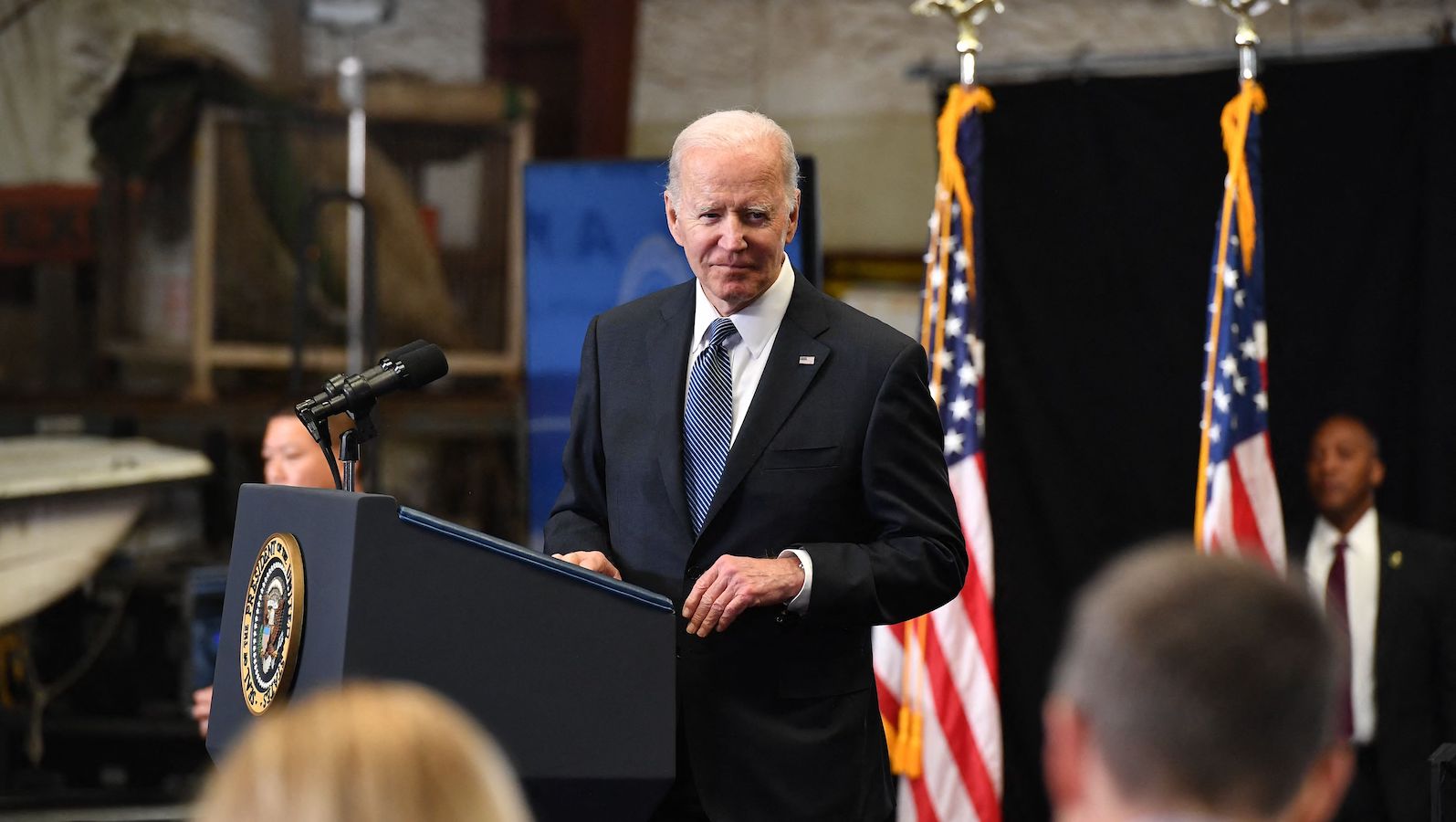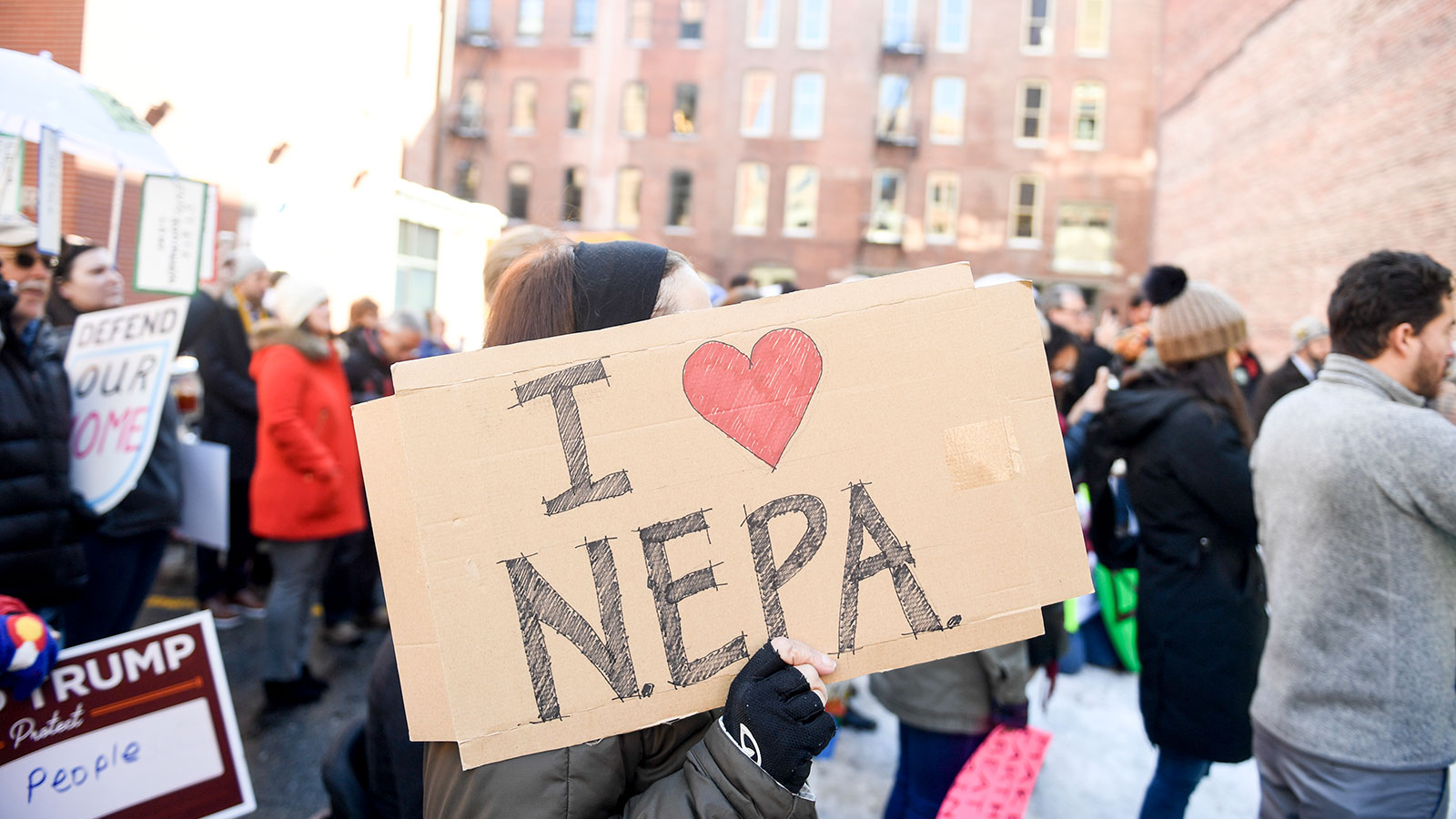The Biden administration is restoring parts of a key environmental law, reversing Trump-era rollbacks that limited community input and prevented federal agencies from considering climate change when approving infrastructure projects, from roads to oil pipelines.
On Tuesday, the White House Council on Environmental Quality announced that it had finalized changes to the implementation of the National Environmental Policy Act, or NEPA, a more than 50-year-old law that requires the federal government to consider the environmental impact of major projects. Under Trump, agencies stopped considering the “indirect” impacts of proposed infrastructure and limited when groups opposed to the projects could weigh in with objections.
Now, federal agencies will once again be required to consider all the impacts of an infrastructure project, including those that are part of a chain reaction or build over time. That would allow environmental reviews to fully account for climate impacts, the council’s announcement states, as well as prevent the release of “additional pollution in communities that are already overburdened by polluted air or dirty water.”
“Restoring these basic community safeguards will provide regulatory certainty, reduce conflict, and help ensure that projects get built right the first time,” Brenda Mallory, chair of the Council on Environmental Quality, or CEQ, said in a statement. “Patching these holes in the environmental review process will help projects get built faster, be more resilient, and provide greater benefits to people who live nearby.”
Enacted in 1969, NEPA has served as a key tool for environmental activists and community groups to oppose infrastructure that would damage the environment or expose vulnerable populations to toxic pollution. It was used to drag out the approval process for the Keystone XL pipeline – activists argued the project would lock in U.S. dependence on fossil fuels and drive up carbon emissions, as well as increase the possibility of oil spills in an aquifer vital for drinking water and agriculture. Keystone XL was eventually blocked by Biden on his first day in office. But NEPA has long been criticized by industry groups and conservative lawmakers, including the Trump administration, which viewed the environmental rule as an obstacle to development, particularly of fossil fuel infrastructure.
Broader changes to NEPA could be in store as the government enters the second phase of its rulemaking process. But Tuesday’s actions, which were first proposed in October, were applauded by environmental groups.
“Good NEPA process requires robust community engagement, rigorous analysis, and public disclosure, which leads to government accountability, better projects with more community buy-in, and less litigation,” Abigail Dillen, president of the environmental law nonprofit Earthjustice, said in a statement. “As we transition to a clean energy future, following NEPA can and must help us to advance equitable solutions, including resilient and innovative new infrastructure.”

But other rollbacks enacted as part of last year’s bipartisan infrastructure law, which shorten the timeline for environmental reviews and exclude certain categories of infrastructure from the process, remain on the books. Changes made to NEPA at that time listed certain kinds of natural gas pipelines, as well as any surface transportation projects costing up to $6 million (or $35 million if federal funding is provided), as “categorical exclusions,” meaning they have no “significant effect on the human environment” and don’t need to go through environmental review. The updates also limited environmental impact statements to 200 pages and, in most cases, required that they be completed within two years. Other laws enacted in 2005, 2012, and 2015 contained more than 60 provisions intended to chip away at NEPA protections, environmental activists told Grist when the changes in the infrastructure law were first proposed last year.
Tuesday’s announcement comes amid a flurry of climate-related actions from the White House this week, as the Biden administration aims to demonstrate its commitment to environmental protection ahead of Earth Day. On Tuesday, the Environmental Protection Agency is expected to provide an update on its efforts to limit the production of hydrofluorocarbons, or HFCs, a class of highly potent planet-warming gases, under a 2020 law. On Wednesday, the White House plans to promote its “clean energy accomplishments,” The Hill reported, while Biden will travel to Portland, Oregon and Seattle, Washington on Thursday and Friday to highlight emissions reductions in transportation, infrastructure, and climate resilience.
The push is part of an effort to prove Biden’s climate agenda is alive and well, despite legislative setbacks to the president’s Build Back Better bill and criticism aimed at his response to the Russian invasion of Ukraine and rising gas prices, a strategy that has largely centered on increasing domestic fossil fuel production. Build Back Better, which would have injected billions in funding for green energy infrastructure, has been stalled in Congress since Senator Joe Manchin announced his opposition, exposing rifts within the Democratic Party. And environmental advocates sharply criticized the administration’s decision to restart oil and gas leases on federal lands, which officials say they were required to do to comply with a court ruling, and to allow increased ethanol sales.


